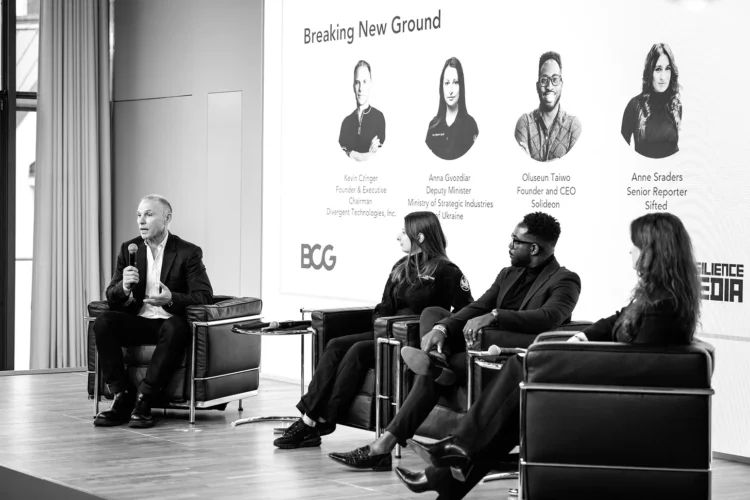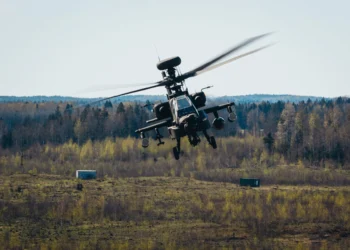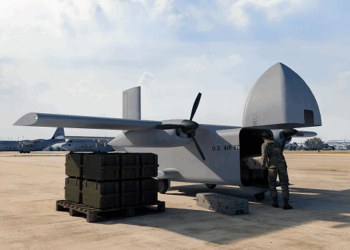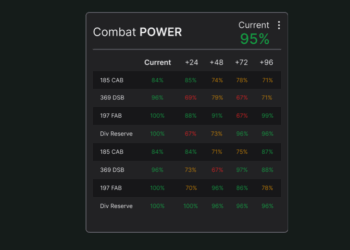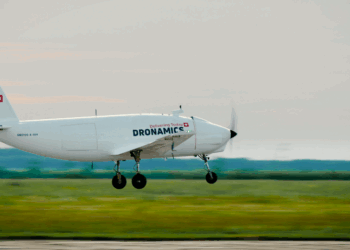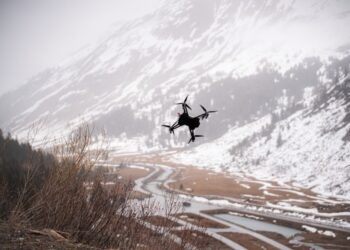The Breaking New Ground panel brought together voices in defence manufacturing and technology, including Kevin Czinger, Founder & Executive Chairman, Divergent Technologies, Inc., Anna Gvozdiar, Deputy Minister, Ministry of Strategic Industries of Ukraine;, and Oluseun Taiwo, Founder & CEO, Solideon, to discuss how digital manufacturing, automation, and AI are transforming the defence industry.
Czinger outlined how AI-driven, fully automated, and tool-less manufacturing is enabling faster, cheaper, and more adaptable defence production. His company’s work with General Atomics has reduced development cycles for unmanned aerial systems (UAS) by 95 per cent, cutting the number of components from 184 to just four. He argued that NATO allies must rethink traditional production models, leveraging new technologies to scale defence output efficiently.
Solideon’s Taiwo made the case that AI and manufacturing advances will make startups more nimble and ultimately fundable: “You don’t need companies having to raise $50-60m to get to products quickly. You’re able to do this for a fraction of the cost, and that’s what [Solideon] has been able to do over the last two years.”
Representing the Ukrainian government, Anna Gvozdiar, Deputy Ministry of Strategic Industries, shared how Ukraine has scaled its defence production from under $1bn to over $20bn since the full-scale invasion. She explained how the country’s private defence sector has rapidly adapted, despite not having the funding its enemy has, integrating commercial technologies into military applications and leveraging partnerships with international defence companies.
The panel also explored venture capital’s role in defence innovation, the evolving relationship between startups and traditional primes, and the importance of joint ventures between European and U.S. companies to accelerate production capacity. While geopolitical uncertainties loom, the speakers agreed that long-term industrial cooperation between Europe and the U.S. will remain essential for collective security.
Watch the full panel on our YouTube channel.
-John Biggs, Resilience Media


